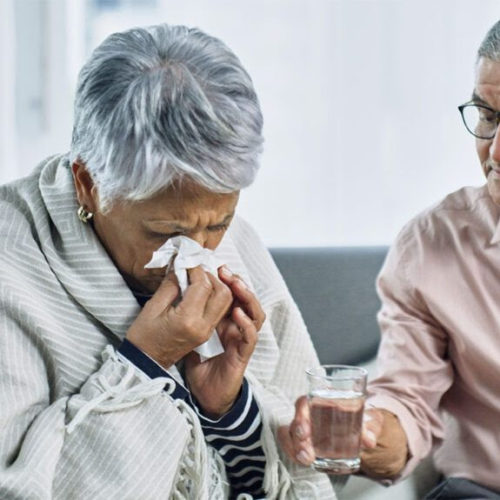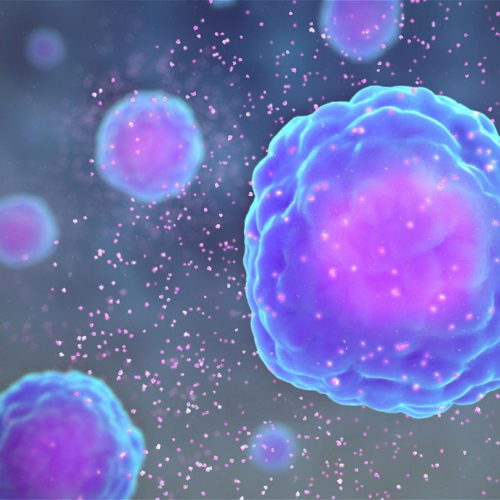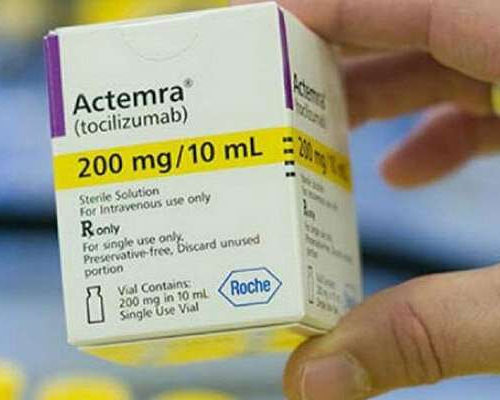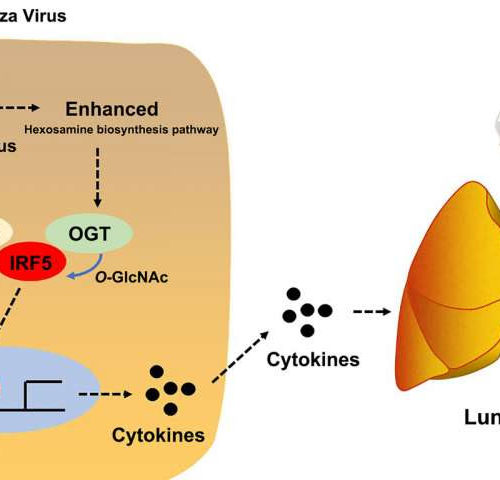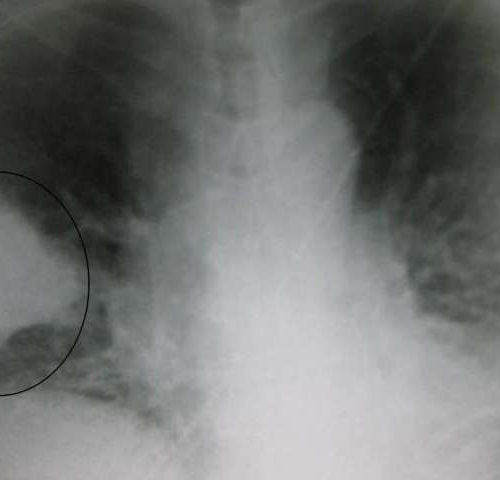Pneumonia is the inflammation of the tissue in the lungs. It typically occurs due to an infection. Pneumonia in people aged 65 or older may become serious due to the higher risk of developing complications. According to the American Lung Association (ALA), older adults have a higher chance of developing a severe illness related to pneumonia....
Tag: <span>Pneumonia</span>
Nanosponges could intercept coronavirus infection
UNIVERSITY OF CALIFORNIA – SAN DIEGO Nanoparticles cloaked in human lung cell membranes and human immune cell membranes can attract and neutralize the SARS-CoV-2 virus in cell culture, causing the virus to lose its ability to hijack host cells and reproduce. The first data describing this new direction for fighting COVID-19 were published on June...
Preventing ‘cytokine storm’ may ease severe COVID-19 symptoms
For some COVID-19 patients, the body’s immune response may be as destructive as the virus that causes the disease. The persistent high fevers, severe respiratory distress, and lung damage seen in some critically ill patients are all signs of an immune system in overdrive. Now, a new clinical trial will test a treatment that targets...
What are the symptoms of viral pneumonia?
Viral pneumonia is pneumonia that develops as a result of a viral infection in the lungs. The symptoms of viral pneumonia are often similar to those of bacterial pneumonia, but, depending on the virus responsible, there may be a few additional symptoms. A wide range of viruses can cause viral pneumonia, including influenza and coronaviruses,...
Arthritis drug presents promise as treatment for COVID-19 pneumonia
by University of California – San Diego UC San Diego Health has launched a Phase III clinical trial, part of a global effort, to assess whether a medication used to treat rheumatoid arthritis and other inflammatory disorders might also have therapeutic value for COVID-19 patients who have developed or at high risk of developing serious...
High glucose levels may explain why some flu patients have more severe symptoms
A team of researchers affiliated with multiple institutions in China and one in Germany has found evidence that suggests high glucose levels may explain why some flu patients have worse symptoms than others. In their paper published in the journal Science Advances, the group describes their work with mouse models and flu patients and what...
Pneumonia recovery reprograms immune cells of the lung
by Boston University School of Medicine A black and white X-ray picture showing a triangular white area on the left side. A circle highlights the area. Credit: James Heilman, MD./Wikipedia Researchers have determined that after lungs recover from infection, alveolar macrophages (immune cells that live in the lungs and help protect the lungs against infection)...
Bacteria in pneumonia attack using bleaching agent
UMEA UNIVERSITY Research shows that bacteria use hydrogen peroxide to weaken the immune system and cause pneumonia. This according to a study at Umeå University and Stockholm University, Sweden. Hydrogen peroxide is also known as a bleaching agent that is used to whiten teeth or hair, as a stain remover, as well as for cleaning...
Dietary zinc protects against Streptococcus pneumoniae infection
Researchers have uncovered a crucial link between dietary zinc intake and protection against Streptococcus pneumoniae, the primary bacterial cause of pneumonia. Globally, it is estimated that nearly two billion people suffer from zinc deficiency, but why this increases susceptibility to bacterial infection has not been well understood—until now. University of Melbourne Associate Professor Christopher McDevitt,...
Pneumonia patients get too many antibiotics—especially as they leave the hospital
by University of Michigan A million times a year, pneumonia sends American adults to the hospital. And while antibiotics help save lives, a new study shows two-thirds receive more antibiotics than they probably need. It’s not the care that happens in the hospital that leads to over-treatment, the study finds. Rather, it’s the prescriptions that patients receive as they head home from the hospital. In all, 93% of the overly long antibiotic prescriptions given...

